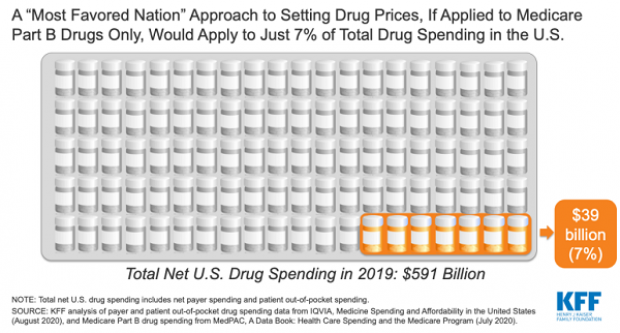President Trump signed four executive orders in July that propose ways to lower drug costs, one of which calls for the federal government to use the typically lower prices set in some other countries as a benchmark for U.S. prices. That approach has long been opposed by pharmaceutical firms, and in an unusual move, the text of the executive order was held back for 30 days to give drug companies a chance to come up with a counterproposal.
The 30-day period has lapsed but the text of the executive order, which Trump has referred to as the “most favored nation” proposal, has still not been released. The drug industry has reportedly pitched an alternative proposal that would cut some drug prices in Medicare Part B by roughly 10% and cap some out of pocket expenses for people in Medicare Part D, at a purported savings of $100 billion over 10 years. But it’s not clear if Trump has been briefed on the counteroffer, and he continues to talk up his own proposal, claiming that it will bring drug prices down for American consumers.
That’s not likely, according to an analysis by the Kaiser Family Foundation, which says the proposed plan may not have much of an effect on drug prices for most Americans. Assuming the proposal is similar to one made by the Trump administration in 2018 — and a photo of the text of executive order captured during the signing ceremony suggests that it is — the plan would apply only to Medicare Part B drug spending, which accounts for just 7% of all prescription drug spending in the U.S.
The plan would potentially lower drug prices for about 4 million people in Medicare Part B, Kaiser said, but do nothing for the 45 million Medicare Part D beneficiaries, the 157 million people with employer-provided insurance and the millions more who lack coverage altogether.





